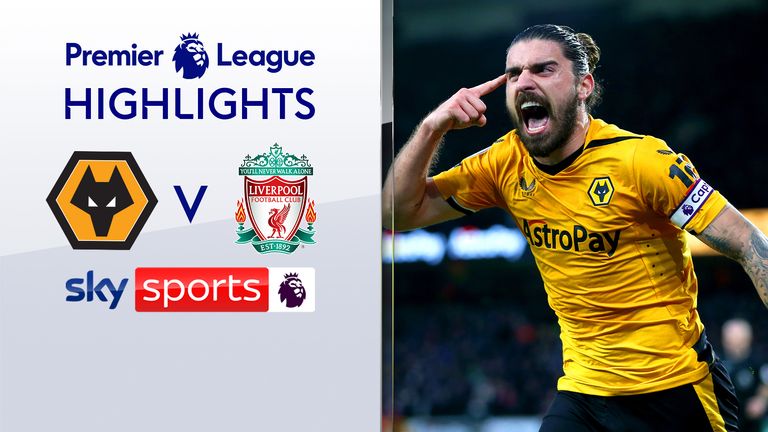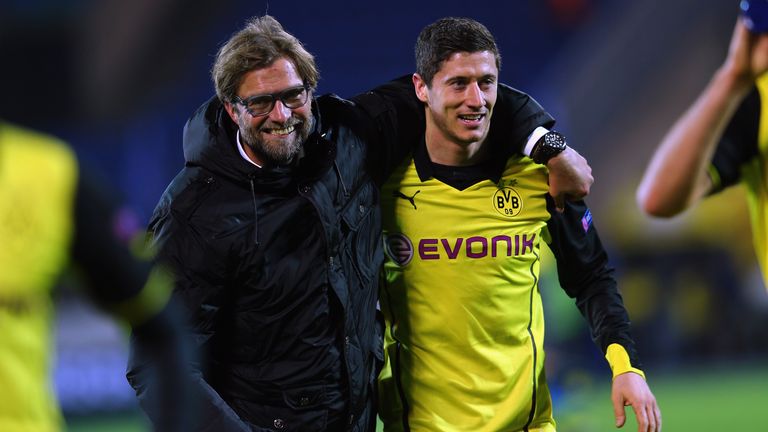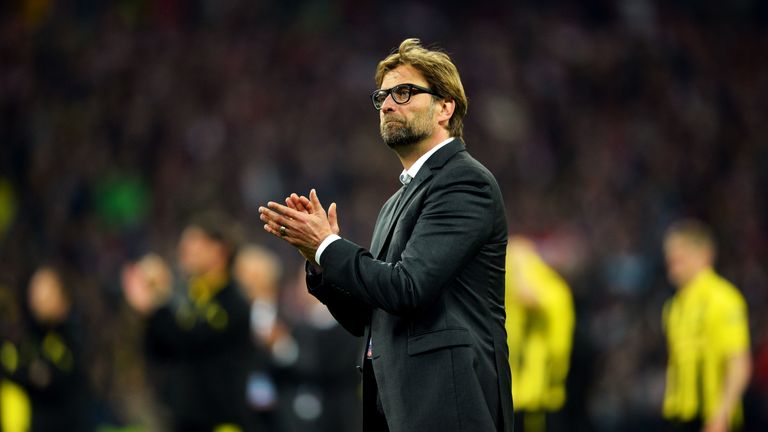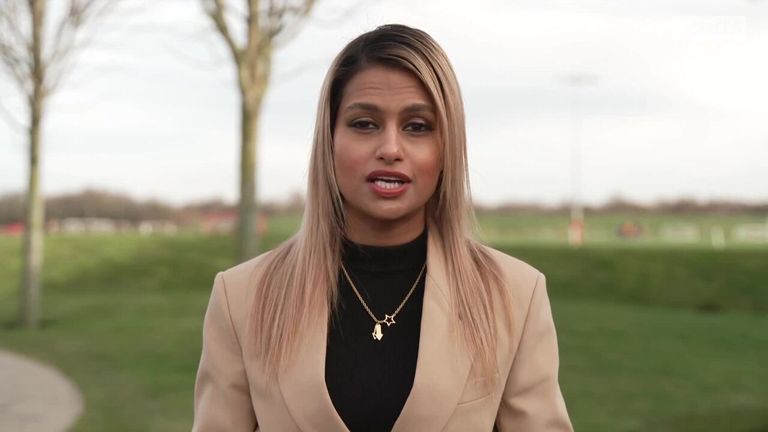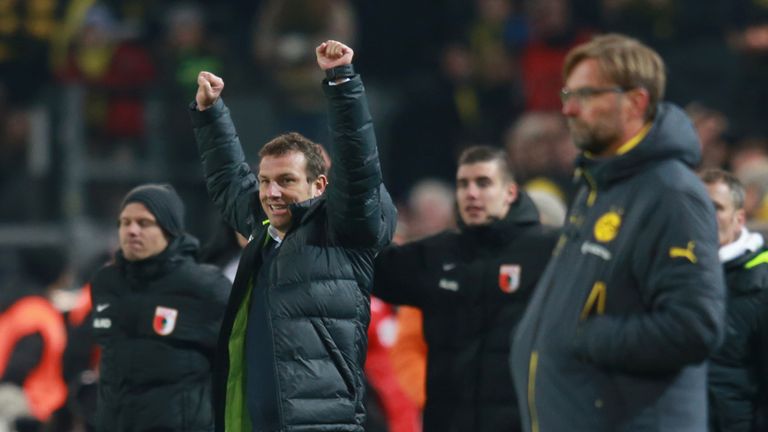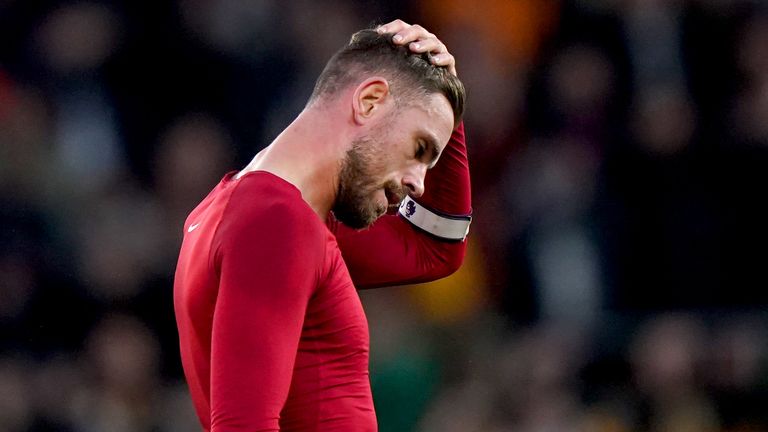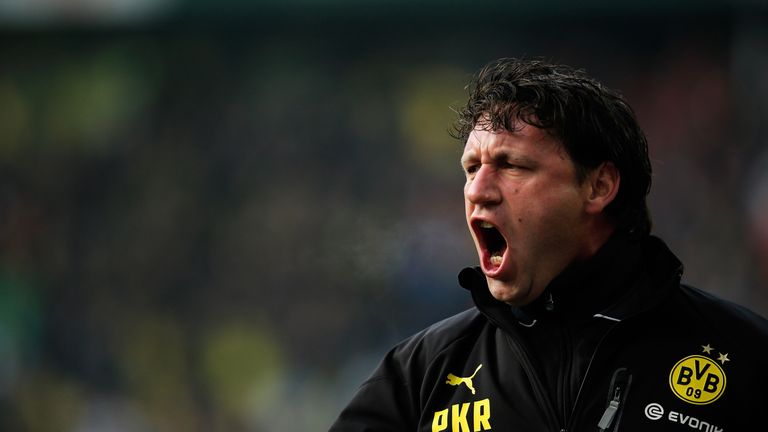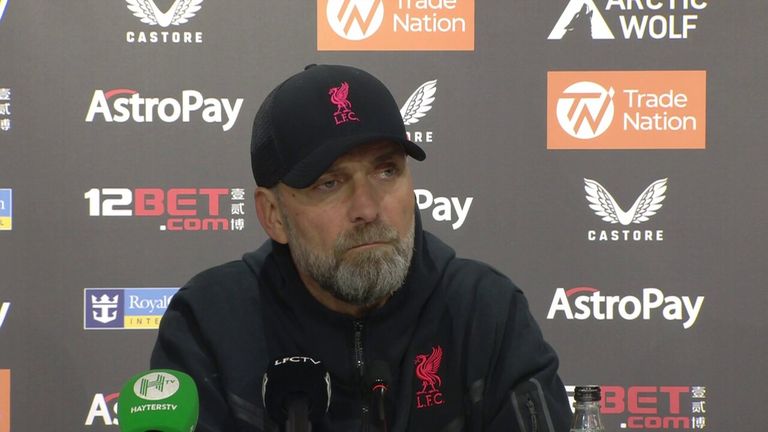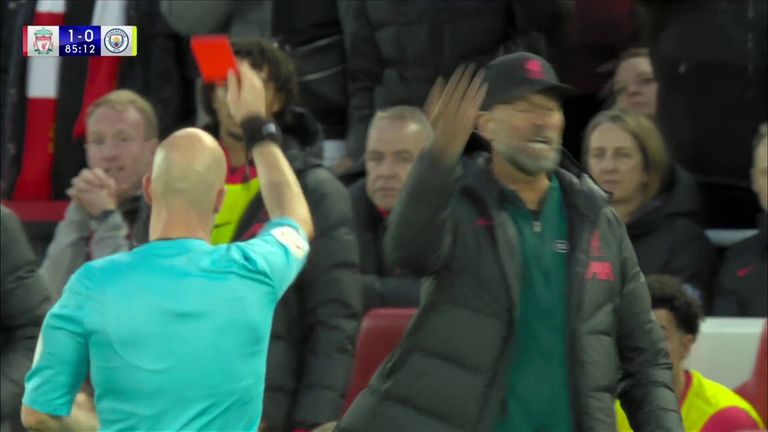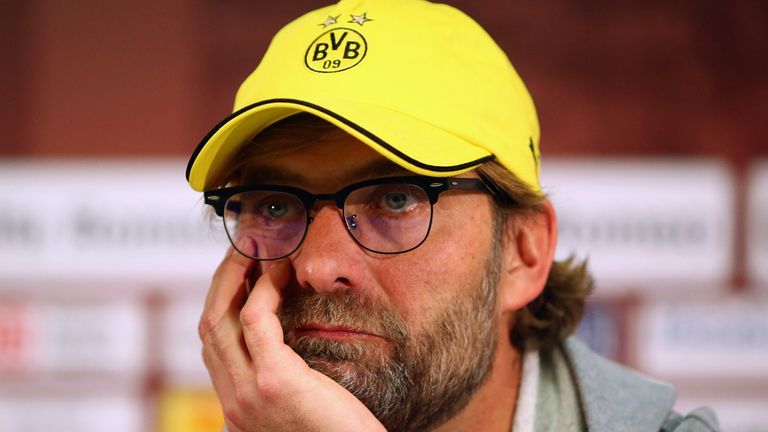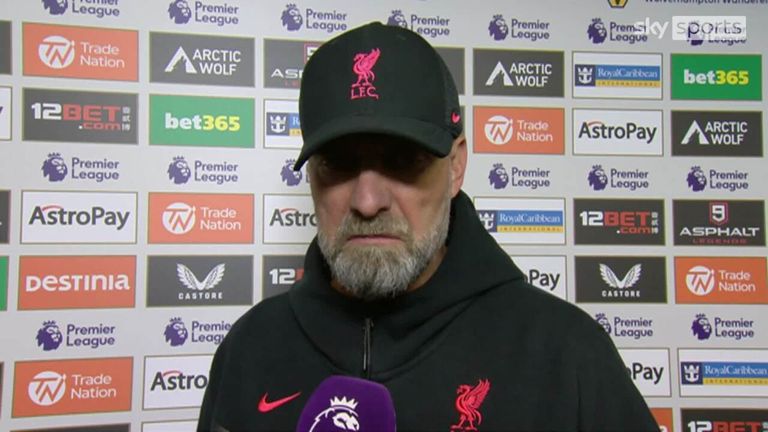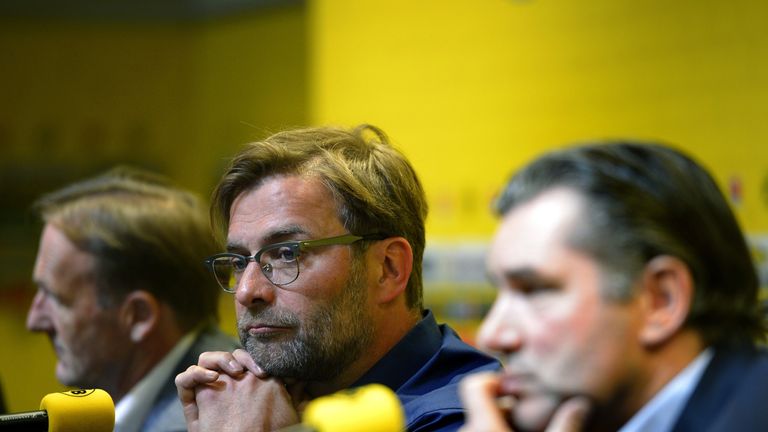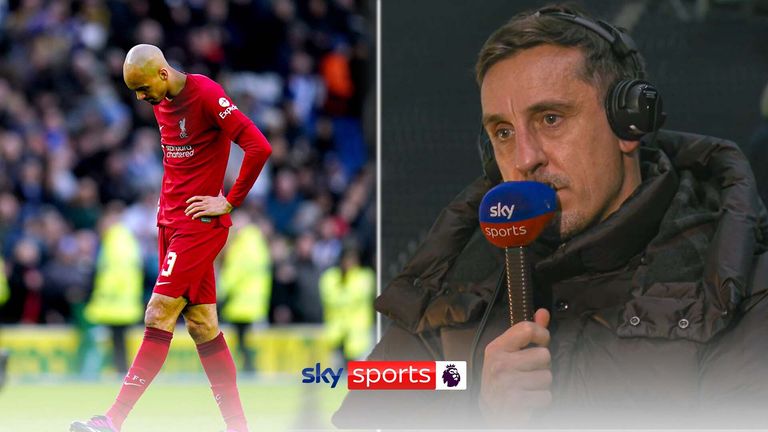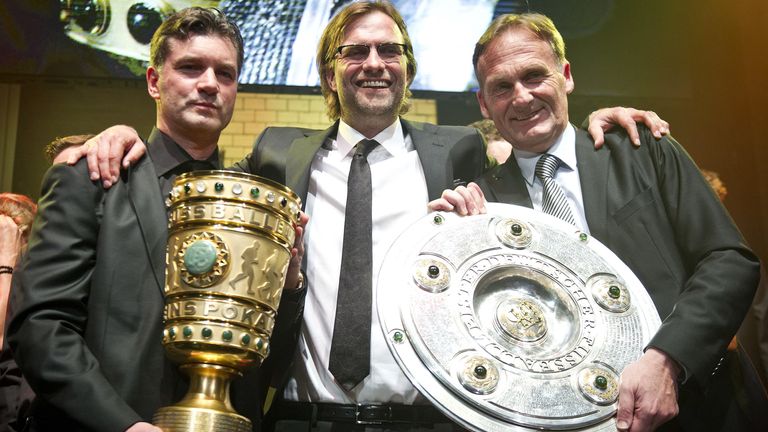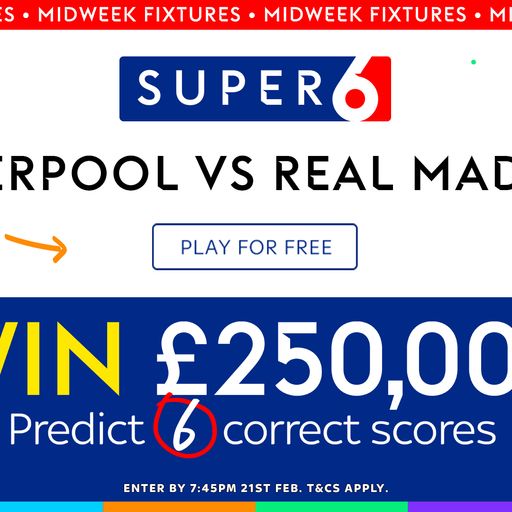Why Borussia Dortmund's 2014-15 implosion under Jurgen Klopp should worry Liverpool supporters
Dortmund won the Bundesliga under Jurgen Klopp in 2011 and 2012, as well as reaching the 2013 Champions League final, before imploding - is the same happening at Liverpool?
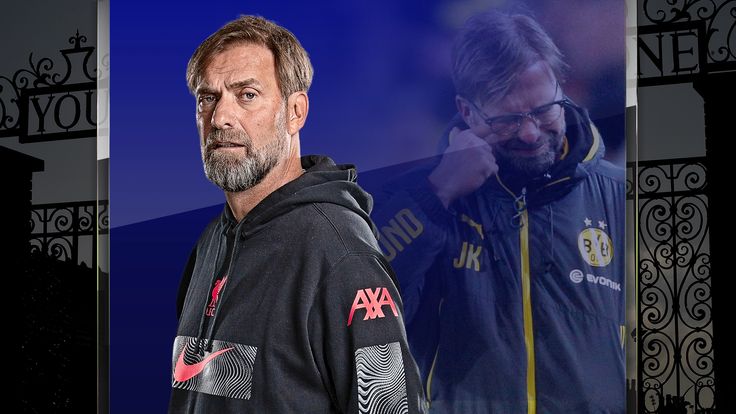
Tuesday 21 February 2023 23:07, UK
Almost a decade ago, Jurgen Klopp's Borussia Dortmund went from German champions and one of Europe's most-feared sides to barely being able to win a match as the German's seven-year spell at the club came to a shuddering halt - so could things be repeating themselves now at Liverpool?
Heading into the 2014-15 season, Dortmund were once again expected to be the main challengers to Pep Guardiola's Bayern Munich. The two clubs, like Liverpool and Man City's recent Premier League battles, had enjoyed a fierce rivalry ever since Klopp had taken over at Signal Iduna Park in 2008, with the Bavarians beating Klopp's team to the Bundesliga in 2013-14.
However, with Klopp having only signed a new contract at Dortmund in October 2013 - ring any bells anyone? - hopes were high at the Westfalenstadion they could repeat their back-to-back title wins under him in 2011 and 2012.
The club, though, would have to try to wrestle back their Bundesliga crown from Bayern without one of the key architects behind their recent successes, Robert Lewandowski, who had agreed to move to the Allianz Arena that summer.
As with Sadio Mane's departure from Liverpool to Munich in June last year, Klopp had tried but failed to persuade his influential forward to stay, leaving a huge hole to fill in attack the following season.
Similar to when Liverpool beat City to claim the Community Shield in July, there were no obvious signs of the struggles to follow as Dortmund confidently dispatched Bayern 2-0 to win the German Supercup in August 2014.
This, after all, was still very much the same side who only lost the 2013 Champions League final against Bayern to a last-minute Arjen Robben goal, although looking back now with the advantage of hindsight, it was also an ageing team that had been going flat out under Klopp for the previous six years.
None of that, however, explained how the team suddenly went from being Bayern's closest challengers just a few months earlier to one that had just 11 points to their name after 12 games of the campaign, including a dreadful run of five straight defeats that sent them spiralling into the drop zone in November.
It was Dortmund's worst start to a Bundesliga season and one that left their coach bewildered and angry: "It's a brutal, s***** situation, crazy," he said at the time.
And like with this season at Anfield, the club's form in Europe was at first unaffected by their travails back on home soil as they topped a tough-looking Champions League group, with every win immediately followed by claims the corner had now been turned.
But frustratingly, it had not as Klopp's trusted lieutenant, Peter Krawietz, recalls in Rafa Honigstein's book, 'Klopp: Bring the Noise': "In the Champions League, we did OK, we qualified for the knock-out rounds, but that only made us wonder if we were lacking the right attitude in the league. You're in a spiral, going round in circles, going down. And we didn't manage to get out of it."
Dortmund's nosedive in results was certainly not helped by Ciro Immobile's struggles in attack, as the man brought in to replace Lewandowski found it hard to adapt to life in the Ruhr Valley and for the first time under Klopp, their transfer business was questioned.
However, as with Liverpool this season, the problems ran far deeper than just the departure of one key player.
Dortmund were not only suffering from injuries to several key players - Klopp called it "the worst injury crisis in the history of football" - which meant they were unable to rotate as often as the manager wanted, but the packed schedule also led to less time on the training pitch in which to iron out their mounting problems in what became a vicious cycle.
Klopp bristled at suggestions from the press that the gegenpressing style he had implemented so effectively at Westphalia had now led to burnout and injuries among his players, snapping back with: "a wretched question, Bayern have injuries too, but they can compensate them better," when a journalist suggested as much ahead of facing Munich.
But it was not just a lengthening injury list that was the problem, Dortmund had become to find it increasingly hard to break down teams who came to Signal Iduna Park with a low block and looking to play on the break.
Klopp's side would routinely dominate games, creating numerous openings, only to squander them and then lose to a goal scored on the counterattack.
"We kept losing games in exactly the same way," recalled Krawietz. "We were extremely vulnerable to counter-attacks. We played games where we enjoyed plenty of possession, created good chances, but lost 1-0 or 2-0 because of a couple of counter-attacks."
And as has also happened at Liverpool this season, the German was quick to dismiss suggestions the rest of the league had now worked his side out, telling a local reporter as much: "I'm not looking for a fight, so I will even answer the stupid questions. If you say we've been 'found out', what does that say about the work of opposition coaches for the last few years? Were they unable to see what our game is?"
Either way, though, the pressure was clearly telling on Klopp, who as well as scolding journalists in press conferences, was also berating referees and their assistants, leading to numerous red cards and hefty fines, both traits we have seen repeated this season.
"I don't recognise myself sometimes on the touchline," Klopp said after one particularly volcanic eruption at a fourth official in Naples had led to his dismissal from the touchline.
Incredibly, at the midway point of the season, the team were still languishing in the relegation zone, with only goal difference keeping them off the bottom of the table.
However, the mid-season winter break came at exactly the right time for Klopp and his beleaguered Dortmund players, unlike what has happened at Liverpool since the campaign resumed again after the pause for the World Cup,
"We had at last a chance to regenerate and practice a few things without the pressure of competitive football," says Krawietz. "It was clear that with a bit of rest for the legs and heads, we'd be able to get it right, that this team could function again."
- Wolves pile on misery for Liverpool with huge win
- Salah's form analysed: What's going wrong?
- Neville: Liverpool need to wake themselves up
They did as Dortmund slowly managed to pull themselves up the table when the campaign resumed after a six-week hiatus, helped by a four-game winning run in February 2015.
In fact, for a while, there was even belief Dortmund could scramble into the Champions League places, only for them to finish seventh and with it qualification for the Europa League third qualifying round.
Another parallel to Liverpool's 5-2 home thrashing by Real Madrid in the Champions League last 16 was a demoralising 3-0 home loss to Juventus for Dortmund at the same stage.
It would ultimately convince Klopp his time was up at the club, the shock announcement coming the following month with Dortmund lying an incredible 37 points behind the leaders Bayern. Though there is no sign of history repeating itself, yet, it will present a worrying omen for Liverpool fans.
All this came just 18 months after Klopp had agreed a two-year contract extension to keep him at the Westfalenstadion until 2018, and less than two years on from contesting the final of Europe's premier club competition in what's a warning to Liverpool fans just how quickly things can turn sour in football.
Klopp himself may refute suggestions the same thing is happening now at Liverpool, saying last month about his Dortmund exit: "Seven years and it was just a situation that players constantly got bought by other clubs. It was a really hard job to do, constantly making two steps back. It was really intense and really exhausting, which is the reason why I said we had to stop it here, but I didn't have an energy problem, not at all.
"I have absolutely no problem with energy and the situation is completely different here. I can understand that I left after seven years [previously] and now we are in a difficult situation and people take that [view] but, if you think twice about it, you realise the situation is completely different."
However, if you had told Dortmund supporters in May 2012 that the man who had just guided them to a league and cup double - their second straight Bundesliga title - would had left the club within three years, you would have been laughed out of town.



